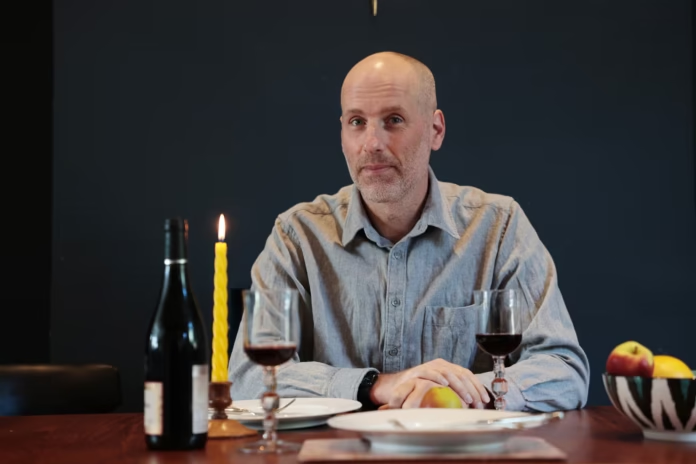I hate confrontation. Even a hint of tension—raised voices, hardened expressions—can leave me feeling uneasy long after the moment has passed. It’s an odd contradiction, because as a journalist, I’ve trained myself to ask difficult questions, to probe gently, and to listen without judgment. But for years, I couldn’t resist the occasional dive into heated political debates with friends and family.
It usually began with an offhand comment. Something about Boris Johnson’s character, the state of the climate crisis, or a controversial protest movement. Add a glass or two of wine, and suddenly what started as casual conversation turned into a familiar sparring match. The tone would rise. Points would be repeated. Sources cited became increasingly shaky. The phrase “we’re going in circles” might be uttered—then ignored as we launched into another round anyway.
The Cycle of Conflict and Regret
These arguments never descended into shouting matches or insults. But they were exhausting and unproductive. Neither side would back down or gain much insight. We’d retreat eventually, defeated and depleted, changing the subject or giving up entirely. Often, I’d say something like, “It’s good to have these debates,” in a feeble attempt to salvage the tone. But inside, I knew that no one had come out of the discussion better off.
READ MORE: Globalisation Is Over, Says Treasury Minister, as UK Gears Up for Economic Reset
And the more often it happened, the more it began to weigh on me. These weren’t strangers I was debating. They were the people I care most about. And each tense conversation left behind just a little more friction.
Why I Decided to Stop
At some point in the past year, I made a quiet decision: I would stop engaging in political arguments with the people closest to me.
There was no dramatic fallout or major falling-out that led me here. It was more of a slow realisation. I’d seen headlines and anecdotes about fractured families and friendships—relationships damaged or even ended over political divisions. I knew I didn’t want that. And while I’d like to believe my instinct for peacekeeping would always prevent permanent harm, I had to ask: if these debates never change minds, why bother?
If nothing changes but stress levels and goodwill, what’s the point?
The Shift: From Battleground to Common Ground
These days, when I sense a conversation drifting into politically charged waters, I pivot. I downplay. I deflect. I say things like, “It’s a tricky one, isn’t it?” or “It’s such a mess.” I might smile or make a joke. Anything to steer things away from the trap I used to fall into so easily.
It’s not that I’ve stopped caring about the issues—far from it. I still read, think, and vote with intention. But I’ve started prioritising something else: the health of my relationships.
I’m more interested now in finding shared ground than in proving a point. I want to understand where people are coming from without assuming they’re enemies just because we disagree. And I want to protect the warmth and closeness I have with people I’ve known for years—people I don’t want to push away over opinions that neither of us will change over dinner.
Why Political Conversations Hurt More Now
It’s no secret that politics have grown more divisive in recent years. Brexit, Trump, climate change, culture wars—these topics don’t just inspire opinions, they stir emotions. And increasingly, people define their identities by their stances. That makes disagreement feel deeply personal, even threatening.
I also think we’re guilty of imagining those we disagree with as more extreme than they actually are. We argue with caricatures instead of real people. We treat the person across the table as if they were a talk show pundit or a political opponent. But that’s rarely the case. They’re our parents, our siblings, our closest friends.
And when we respond to them as if they’re avatars of a movement or party we dislike, the conversation becomes hostile and hopeless before it’s even begun.
Avoidance or Wisdom?
Some might call my new approach cowardly. Isn’t silence dangerous in the face of misinformation or injustice? Maybe. But I don’t see what I’m doing as surrender. I think of it more as a form of conscientious objection.
I still care. I still stay informed. But I no longer believe that arguing over the dinner table is the best way to change minds—or protect relationships. There are better ways to challenge our own assumptions and broaden our perspectives. Ways that don’t involve sacrificing harmony or burning bridges.
What I’ve Gained
Since I stepped back from these conflicts, something unexpected has happened: I feel better. I feel lighter. I go to family gatherings without a sense of dread. I enjoy my friendships more. I don’t replay conversations in my head for days afterward, wondering if I should have phrased something differently.
The relief of no longer needing to “win” or “correct” someone has opened up space for curiosity, empathy, and actual understanding. Instead of shutting people down, I try to listen—truly listen—to what they’re saying beneath the surface. And sometimes, without the pressure of debate, I learn more.
Advice for the Peace-Seeking Debater
If you’ve felt the stress and regret that often follow political clashes with loved ones, I have a suggestion: try stepping back. Try choosing connection over correction. Choose kindness over cleverness. Not always—but often.
There are plenty of people in the world ready to argue. The internet is full of rage, algorithms feeding us the worst of one another. Maybe it’s OK if the kitchen table isn’t another battleground. Maybe it can be a safe place again.
Conclusion: Choosing Peace, Not Passivity
This doesn’t mean disengaging from the world or ignoring injustice. It means recognising that the stakes of a relationship may, in that moment, be higher than the stakes of a disagreement. It means trusting that meaningful change can happen in quiet moments, in kind conversations, and in the example we set by listening rather than shouting.
